Armistice Day: A reader's poignant memories of Portsmouth during the war
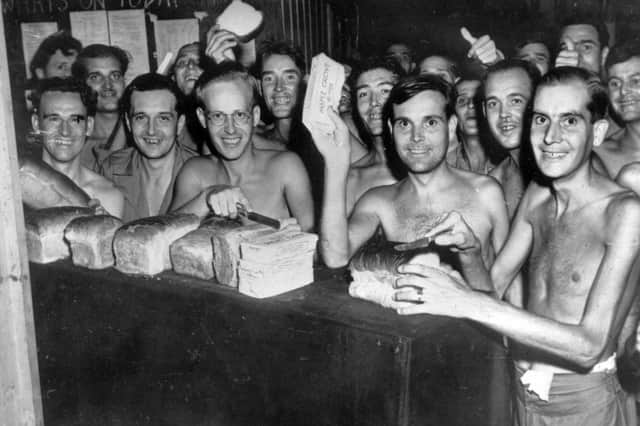

Before the Second World War workers in HM Dockyard were required to spend a period in a foreign yard in order to become established and hence further their careers. Thus my father William Edward Forsey, a steel founder, departed east for Hong Kong aboard the P&O liner Rawalpindi in 1939.
It is interesting to note that, later in the year, while serving as an armed merchant cruiser, this grand old lady was lost between Iceland and the Faroe Islands in a gallant but hopeless action against the German battlecruisers Scharnhorst and Gneisenau.
Advertisement
Hide AdAdvertisement
Hide AdWhen the Japanese invaded in December 1941, dockyard workers joined the Hong Kong defence corps to supplement the defensive Army units. But against overwhelming odds the government governor surrendered the Colony on Christmas Day 1941 and British, Indian, Canadian and others lay down their arms and entered the uncertain and dangerous world of prisoners of war. My father was incarcerated in the notorious Shamshuipo camp where he remained for the entire war.
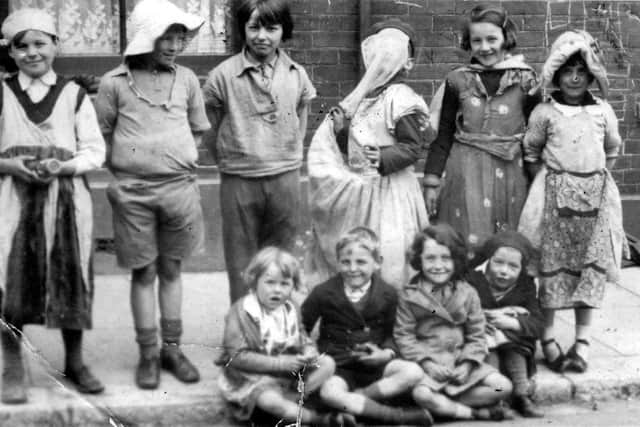

It may be worth considering the way the Prisoners of War were treated by their Japanese captors.
The Japanese government was not a signatory to the 1929 Geneva Convention which provided humane treatment of Prisoners of War. Under the Japanese warrior code, surrender was an unspeakable disgrace and prisoners were treated as slaves. They were starved, brutalized and forced to work in mines, fields, shipyards and factories.
Drafts of 'fit' prisoners were organised for transport by ship to the Japanese islands as forced labour. One sad incident that arose from this practice was a case of American on British friendly fire. A Japanese freighter the Lincoln Maru was torpedoed by the American submarine Grouper and 800 Prisoners of War drowned. My father was unfit for travel at the time of these drafts. At the end of the war he was released and was boarded for home on the hospital ship Oxfordshire. Sadly my father, as resort of the terrible treatment in the prison camp and sunstroke, passed away on September 3, 1945 and was buried at sea.
Advertisement
Hide AdAdvertisement
Hide AdMy mother had taken my younger brother Jeffrey and me to a church in Twyford Avenue each week in order to see details of my father's well-being. However, the Japanese were not bound by the Geneva Convention to a prompt declaration of who was being held as a prisoner of war. Apparently under the code of Bushido they felt that it would be shaming for a family to learn that their man had been taken prisoner. It was not until nearly two years and eight months had passed that the Japanese authorities acknowledged his internment.
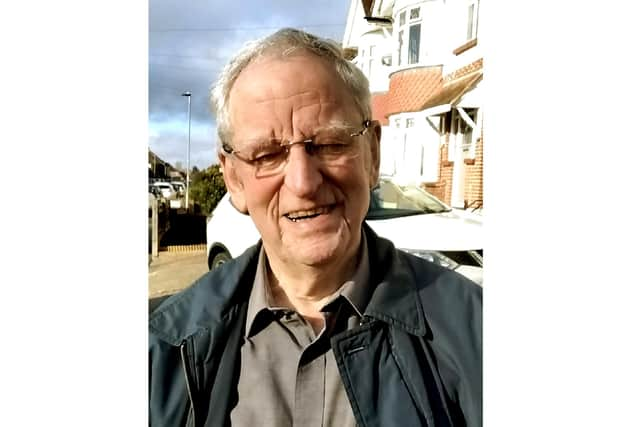

Portsmouth, being the home of the premier naval dockyard, was heavily bombed and strafed during the war. Concerned that my father would need to be kept warm when he came home my brother and I scavenged among the houses in Balliol Road that had been devastated by landmine. The search was for timber that could be used to fuel fires. After all these years I can still remember the night when a postman brought the awful news of my father's death. I still feel that, to spare our grief, my mother never shed a tear. But I can still hear gentle sobbing through the thin bedroom walls of a house in Binstead Road, which had itself been strafed during bombing raids.
But there was some good news to come. My mother's brother-in-law Arthur Woods, a staff sergeant in the RAOC, had been taken prisoner during the fall of Singapore. He had survived incarceration during which he had been forced to work on the construction of the notorious Thai-Burma railway. Whether the long period of being fed a poor diet, consisting mainly of rice, had left its mark for he suffered from Beri-Beri, a vitamin deficient illness. Upon his return to this country he always wore a heavy coat, even in hot weather.
Since 1939 my beloved mother had been responsible for the welfare of her aged mother-in-law as well as her two young sons.
Advertisement
Hide AdAdvertisement
Hide AdShe took any job that was available in order to supplement her finances. In this she successfully guided my brother and myself through to the sixth form at the Northern Grammar School in Mayfield Road.
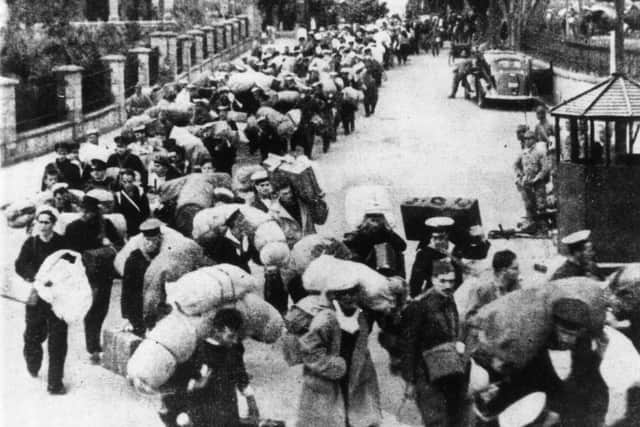

She never received any reparation from the Japanese and had passed away before Tony Blair agreed compensation in November 2000. Even her war widow's pension was the subject of prolonged negotiations between the army and Admiralty. It took some time for them to agree who had been my father's employer when Hong Kong was surrendered.
Despite the mental and physical stress she had suffered in her life, this was a proud and stoical woman who would never ask for help. Following her death she never owed a penny. This actually would surely be recorded as foolish by today's standards. However, apart from my wife, I place and regard this gentle, loving woman above all others.
Having lived through the events described above what conclusions have I reached, if any?
Advertisement
Hide AdAdvertisement
Hide AdJapanese civilians suffered horribly for the sins of their leaders after atomic bombs fell upon Hiroshima and Nagasaki.
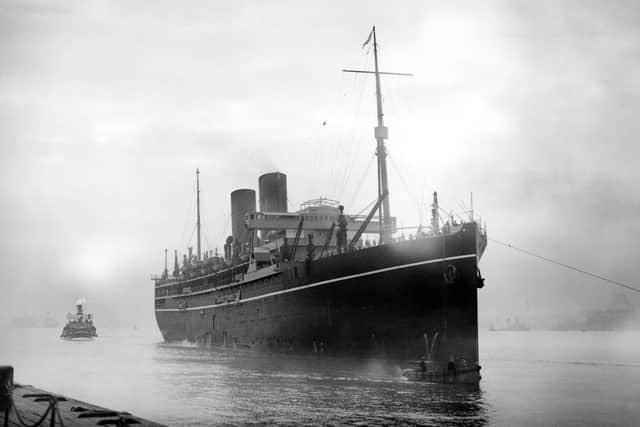

In Russia 20 million souls were lost when they stood alone against the German invaders while waiting for the second front to open up in the west.
If ordinary citizens fail to recognise the danger and allow dictators like Tojo, Hitler, Mussolini and Stalin to gain political control of their countries, international strife is liable to follow and they, the citizens, will pay the price.
Following the Second World War the last thing the electorate wanted was a resumption of the conditions that existed in the 1930s.
Advertisement
Hide AdAdvertisement
Hide AdTroops needed housing and employment. Industry had to be returned to peaceful production, and massive war loans had to be repaid. A Labour government led by Clement Attlee was elected based on a manifesto that promised progress in these fields. In my opinion, they largely made good on these commitments, including the establishment of a welfare state and the nationalization of the great engines of industry. Despite the wholesale opposition of the Conservative Party and the medical profession a National Health Service was created.
But 75 years have passed and the world is in the grip of a global health pandemic. Governments are struggling to regain control with varying levels of success.
In Britain I feel the principle of care from the cradle to the grave is being eroded. The concept of having a family doctor is disappearing and our precious National Health Service is slowly being privatised. As the government introduces measures to control the Covid-19 virus, unemployment is soaring and children of poor families are suffering.
Those on the bottom of the wealth pyramid are being asked to take the strain and I sense a feeling of foreboding and civil unrest.
We must draw upon the lessons of history and never repeat them.
Comment Guidelines
National World encourages reader discussion on our stories. User feedback, insights and back-and-forth exchanges add a rich layer of context to reporting. Please review our Community Guidelines before commenting.